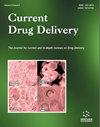An Epic Advancement in Targeting Macrophages for Cancer Therapy Approach
IF 3
4区 医学
Q2 PHARMACOLOGY & PHARMACY
引用次数: 0
Abstract
: Macrophages are immune cells with high heterogeneity and plasticity, crucial for recognizing and eliminating foreign substances, including cancer cells. However, cancer cells can evade the immune system by producing signals that cause macrophages to switch to a pro-tumor phenotype, promoting tumor growth and progression. Tumor-associated macrophages, which infiltrate into tumor tissue, are important immune cells in the tumor microenvironment and can regulate cancer's growth, invasion, and metastasis by inhibiting tumor immunity. This review article highlights the characteristics of tumor-associated macrophages and their role in the occurrence and development of cancer. It outlines how reprogramming macrophages towards an anti-tumor phenotype can improve the response to cancer therapy. Explore the intricate process of engineered nanoparticles serving as carriers for immunostimulatory molecules, activating macrophages to instigate an anti-tumor response. Finally, it summarizes several studies demonstrating targeting macrophages is a potential in preclinical cancer models. Several challenges must be addressed in developing effective macrophage-targeted therapies, such as the heterogeneity of macrophage subtypes and their plasticity. Further research is needed to understand the mechanisms underlying macrophage function in the tumor microenvironment and identify novel targets for macrophage-directed therapies. Targeting macrophages is a promising and innovative approach to improving cancer therapy and patient outcomes.针对巨噬细胞的癌症治疗方法取得重大进展
:巨噬细胞是一种具有高度异质性和可塑性的免疫细胞,对于识别和清除包括癌细胞在内的外来物质至关重要。然而,癌细胞可以通过产生信号,使巨噬细胞转为有利于肿瘤的表型,促进肿瘤的生长和进展,从而逃避免疫系统的攻击。渗入肿瘤组织的肿瘤相关巨噬细胞是肿瘤微环境中重要的免疫细胞,可通过抑制肿瘤免疫来调节癌症的生长、侵袭和转移。这篇综述文章重点介绍了肿瘤相关巨噬细胞的特点及其在癌症发生和发展中的作用。文章概述了如何将巨噬细胞重编程为抗肿瘤表型,从而改善对癌症治疗的反应。探索工程纳米粒子作为免疫刺激分子载体的复杂过程,激活巨噬细胞以激发抗肿瘤反应。最后,报告总结了几项研究,这些研究表明,在临床前癌症模型中,以巨噬细胞为靶点是一种潜在的方法。开发有效的巨噬细胞靶向疗法必须应对一些挑战,如巨噬细胞亚型的异质性及其可塑性。要了解巨噬细胞在肿瘤微环境中的功能机制并确定巨噬细胞靶向疗法的新靶点,还需要进一步的研究。以巨噬细胞为靶点是改善癌症治疗和患者预后的一种前景广阔的创新方法。
本文章由计算机程序翻译,如有差异,请以英文原文为准。
求助全文
约1分钟内获得全文
求助全文
来源期刊

Current drug delivery
PHARMACOLOGY & PHARMACY-
CiteScore
5.10
自引率
4.20%
发文量
170
期刊介绍:
Current Drug Delivery aims to publish peer-reviewed articles, research articles, short and in-depth reviews, and drug clinical trials studies in the rapidly developing field of drug delivery. Modern drug research aims to build delivery properties of a drug at the design phase, however in many cases this idea cannot be met and the development of delivery systems becomes as important as the development of the drugs themselves.
The journal aims to cover the latest outstanding developments in drug and vaccine delivery employing physical, physico-chemical and chemical methods. The drugs include a wide range of bioactive compounds from simple pharmaceuticals to peptides, proteins, nucleotides, nucleosides and sugars. The journal will also report progress in the fields of transport routes and mechanisms including efflux proteins and multi-drug resistance.
The journal is essential for all pharmaceutical scientists involved in drug design, development and delivery.
 求助内容:
求助内容: 应助结果提醒方式:
应助结果提醒方式:


